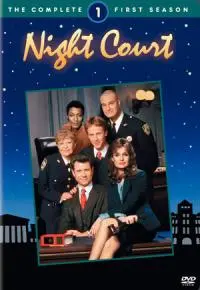As a writer who has been a criminal lawyer for over a decade, I often get asked about legal research for novels, short stories and film scripts. Recently, an author friend of mine showed me a draft of her newest work and I had to break it to her that one of the key elements of the manuscript was a legal impossibility. Whoops. It pays to do your research ahead of time to make sure you don’t end up sabotaging your plot from the get-go.
Whether your protagonist is a hotshot attorney walking into a murder trial or a convicted criminal awaiting his appeal in prison, it’s important that you maintain your authority by using the correct jargon and getting the process right. Researching complex legal issues and procedures can be a tedious and unpleasant task, but this article will provide some helpful advice on doing legal research for your manuscript.
Know Your Jurisdiction
Some legal terms are universal, but others are specific to particular regions. ‘Juvenile delinquents' in one jurisdiction might be called ‘young offenders’ in another. In Canada, bail hearings are know as ‘show cause hearings’. Weird, I know. A Florida defense attorney or an Alaskan prosecutor might refer to a procedure by a totally different name. Every U.S. State has its own penal code, so even crimes have different names, section numbers, requirements of proof, and penalties depending on the jurisdiction in which they are being dealt with. Laws and the terms associated with them also change over time. Luckily for you, historical court records and transcripts of actual trials are also cataloged at law libraries, so if you’re writing about a 1920s prosecutor working on a bootlegging trial, chances are there is an actual trial that fits your scenario. You can track it down, read it and pull useful information from it to strengthen your manuscript. Ask a law librarian at your local law school for help. That’s the person lawyers often ask when we can’t answer a question.
![]() Online Resources Abound
Online Resources Abound
You’re writing a tense courtroom scene and want to make it sound authentic? Court proceedings are part of the public record. Actual transcripts of direct and cross examinations are available in pdf format online. IBJ Criminal Defense Wiki is an invaluable resource for writers. Of particular interest is their section on cross-examination samples. You can read real excerpts from defense lawyers cross-examining accused murderers, rape victims, coroners, police officers, crime scene technicians and other professionals. Use these actual cases to flesh out your own courtroom scenes. Search online for articles here that detail ‘solicitor client privilege’ and ‘how to interview a juvenile client’ which allow you to draw from them directly.
Go to a Court
A courthouse is an incredible place to observe people and do live research for your writing. Most court proceedings are open to the general public. If the judge has deemed a particular hearing closed to the public, there will likely be a sign on the courtroom door or a guard standing outside to keep gawkers out. Check the website of your local courthouse or give them a call to find out when court is in session and what type of hearings are on the docket. You will likely be searched at the entrance of most courthouses, so leave your pocket knifes and other potential weapons at home unless you want to lose them. Bring a notepad and pen. Sit down; standing isn’t generally tolerated in the courtroom. Don’t take any pictures and don’t use your phone while inside. And make sure you turn off your ringer unless you want to have the judge address you in open court. If people do ask why you’re there, tell them you’re doing research. Follow the posted rules and behave yourself and you’ll be fine.
Ask a Lawyer
 Writer friends often ask me for advice about the legal aspects of their manuscripts or to refer them to another lawyer who can help them get the details right. Almost everyone knows someone who knows a lawyer. Tell your acquaintances what you’re looking for and ask them to introduce you to their lawyer friends. If you don’t have friends who know lawyers, try randomly querying lawyers you find online via email. Keep your email requests short and to the point. Offer to buy them lunch and put them in the ‘thank you’ notes of your published book in exchange for a few questions about the law. Be up-front about what you’re writing and what research you’re doing so there are no surprises. Lawyers value time over all else and billable hours are everything. So make sure you have specific questions and know exactly what you need to know. And remember to follow through on the ‘thank you’ because having a reliable contact that you can use down the road is invaluable.
Writer friends often ask me for advice about the legal aspects of their manuscripts or to refer them to another lawyer who can help them get the details right. Almost everyone knows someone who knows a lawyer. Tell your acquaintances what you’re looking for and ask them to introduce you to their lawyer friends. If you don’t have friends who know lawyers, try randomly querying lawyers you find online via email. Keep your email requests short and to the point. Offer to buy them lunch and put them in the ‘thank you’ notes of your published book in exchange for a few questions about the law. Be up-front about what you’re writing and what research you’re doing so there are no surprises. Lawyers value time over all else and billable hours are everything. So make sure you have specific questions and know exactly what you need to know. And remember to follow through on the ‘thank you’ because having a reliable contact that you can use down the road is invaluable.
Speak in Tongues
Latin is the language of lawyers. Most Latin maxims used in legal documents originate from European countries that spoke Latin in their courtrooms during the Medieval period. Phrases like actus reus, mens rea and amicus curiae are commonly used by lawyers, but remain completely unknown to most laypeople. If you come across terms you don’t understand or want to jazz up your dialogue, this handy online chart provides plain language definitions for many, if not all, of the legal terms in Latin.

About the author
Repo Kempt has worked as a criminal lawyer in the Canadian Arctic for over ten years. He is the author of a book about seal hunting, a member of the Horror Writers Association, and a guest columnist for the Canadian Broadcasting Corporation. He lives on a cricket farm with his wife, Joy and his little dog, Galactus. In his spare time, he looks for an agent for his latest manuscript.
 Online Resources Abound
Online Resources Abound







